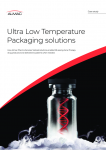DCAT Week 2021 to take on industry education, innovation

The annual Drug, Chemical, and Associated Technologies Association gathering, known more familiarly as DCAT Week, will take place online realm (rather than its traditional home of New York City) July 12-16. While the virtual venue might be new, the opportunity for industry professionals to gather and share ideas and innovations is once again on the table.
Outsourcing-Pharma spoke with two DCAT presenters about this year’s program, and the forces (including the COVID-19 pandemic) impacting the event, as well as the people attending:
- Sean Diver, DCAT president (Lonza)
- Margaret Timony, DCAT executive director
OSP: Could you please talk about some of the obstacles—and opportunities—the professionals attending DCAT Week have faced since the arrival of COVID-19?
SD: The pandemic brought the industry tremendous obstacles and the desperate need to innovate with rapid response time. Creating, developing, and manufacturing new treatments and preventative medicines for COVID-19 in such a short window of time has certainly been unprecedented, and for the professionals attending DCAT, they have had to work tirelessly on getting this accomplished.
Creative solutions needed to be conceived to get around the obstacles that presented themselves, and worldwide distribution of difficult to manage products needed to be arranged. The result has been truly remarkable.
In addition, these same people have also been charged with keeping the clinical pipeline moving for all the non-COVID-19 related programs. Looking forward, the expectation for speed for innovation will not decline, and now that the world has seen that it can be done, professionals will have to adapt to the newly set expectations related to the quickness of a candidate through the clinic with tremendous success.
OP: With DCAT Week, as with many industry events, the show must go on (just virtually, instead of in physical space). Why is it important to continue the programming DCAT Week is offering?
SD: DCAT Week is a multifaceted event where our members hold high-level, private, strategic meetings with customers and suppliers in their business meeting space, as well as attend industry education programs and networking opportunities. For Virtual DCAT Week, we are encouraging our members to attend the education program webinars and in the spirit of DCAT Week to meet virtually with their customers, suppliers, and partners.
MT: DCAT Week education programs are developed by our DCAT Education Committee volunteers. As industry professionals, they know what their DCAT colleagues are interested in learning about. So, though this year’s programs will be delivered virtually, they will still be the same high quality our members have come to expect.
We’ve conveniently scheduled an hour program each day of the week at 10 am EST to accommodate as many of our members around the globe as possible. The advantage of the virtual format is that if members are tied up in meetings, they’ll have access to the programs until July 31, not something that we’re able to offer during an in-person DCAT Week.
OSP: Can you share some of the overall trends and challenges of concern to pharmaceutical professionals?
SD: The pandemic very quickly forced the world to work virtually, and now that we have proven that to be effective, working virtually will not be going away anytime time soon! Therefore, enhancing the skill set of connecting virtually needs to continue to be honed. DCAT recently held two webinars on Digital Connectivity with Erica Dhawan, where these important topics were discussed.
Meeting in person is never going to be eliminated, but travel and in-person experiences are likely to decline, so we need to shift to make the most of the kind of interaction that we intend to have. For DCAT, that means that we need to continue to have a virtual presence throughout the year to remain connected to our membership and that when we are together again in March 2022, we will be able to maximize the in-person experience!
The COVID-19 pandemic has put a spotlight on maintaining business operations in the face of supply-chain disruptions for both bio/pharma companies and their suppliers. DCAT’s Research and Benchmarking Committee just released its fifth report, Managing Business Continuity Risks, which provides insights on how DCAT member bio/pharma companies and suppliers maintained operations during the COVID-19 pandemic and how their experiences are guiding planning for business continuity in the event of future disruptions. The DCAT organization provides these reports as a value-added service for its membership.
OSP: Could you please offer a glimpse into the DCAT Week 2021 programs?
MT: We have all of our key programs, including the Member Company Announcement Forum, scheduled during Virtual DCAT Week.
Pharma Industry Outlook [Monday, July 12, 10 am to 11 am EDT] is one of our most popular programs. Graham Lewis, vice president of global pharma strategy at IQVIA, will be returning to give a comprehensive analysis of how the bio/pharmaceutical industry performed thus far in 2021 and what can be expected in the near term.
Executives Insights: Manufacturing and Supply – Lessons Learned from the Pandemic [Tuesday, July 13, 10 am to 11 am EDT] features Remo Colarusso, vice president of Janssen Supply Chain; and Ken Kent, senior vice president of chemical development and manufacturing operations with Gilead Sciences, whose companies have met the substantial task of manufacturing and supplying large volumes of their respective COVID-19 vaccine and treatment under accelerated timelines and at an unprecedented pace.
Executives Insights: How COVID-19 is Transforming the Future of Drug Development [Wednesday, July 14, 10 am to 11 am EDT] features Philip Dormitzer, vice president and chief scientific officer for viral vaccines at Pfizer; and Rahul Singhvi, CEO and director of National Resilience. They will their perspectives on the future of drug development: promising R&D areas, the rise of new modalities, and what the industry has learned and can take forward from the unprecedented pace of scientific innovation that has taken place to address COVID-19.
The CPO Lens: What’s Next in Business Continuity Planning and Risk Mitigation [Thursday, July 15, 10 am to 11 am EDT] features Pravin Khandare, CPO of Biogen; and David Montecalvo, senior vice president and chief operations and supply chain officer of West Pharmaceutical Services, who will provide their insight on how the industry has and will continue to strengthen business continuity planning and supply risk management in light of lessons learned from the COVID-19 pandemic as well as on other important issues, such as the future of digitalization in supply management.
In addition, the virtual DCAT Member Company Announcement Forum will feature select member companies making major announcements (key corporate strategic developments, mergers, and acquisition, including post-M&A integration, and significant manufacturing expansions) in pre-recorded video announcements available to the DCAT Membership from July 12 to July 31.
OSP: Then, during the scientific keynote by Jennifer Doudna, Nobel Laureate in Chemistry (2020), DCAT Week attendees will be hearing about some groundbreaking work. Could you please touch upon the implications her research might have on drug development, especially with precision medicine?
SD: I am honored to have the privilege of interviewing Dr. Doudna about her groundbreaking development of CRISPR-Cas9 as a genome-engineering technology, with collaborator, Dr. Emmanuelle Charpentier, following her keynote address.
CRISPR technology has changed the course of human genomic research. It has the potential of speeding up the drug discovery process by making drug target identification faster. And in terms of precision medicine, it can conceivably be used to delete or add specific strands of DNA to correct for a human disease.
Early on in the pandemic, researchers used the technique to develop rapid test procedures and vaccine strategies and shared them with the scientific community. Dozens of human trials are underway for medical applications for conditions from cancers to atherosclerosis to a congenital form of blindness and sickle cell anemia.
I look forward to discussing the promise, challenges, and ethical issues of this revolutionary tool with Dr. Doudna.
OSP: Do you have anything to add—about DCAT Week, the programming, or the industry in general?
SD: We expect that DCAT Week 2022 may be the first event that many of our members will be attending in person post-COVID, and we expect tremendous enthusiasm for meeting colleagues in person. We are planning exciting events and education sessions that will enhance the superior networking opportunity we will be able to provide.
MT: Our members consider DCAT Week to be their most important meeting of the year. We are hearing from them that DCAT Week 2022 (March 20-24, 2022) in New York City is highly anticipated. I think we are all looking forward to opportunities to do business and network in person.
DCAT Week 2021 is scheduled July 12-16 online. For more information or to register, visit DCATWeek.org.




















